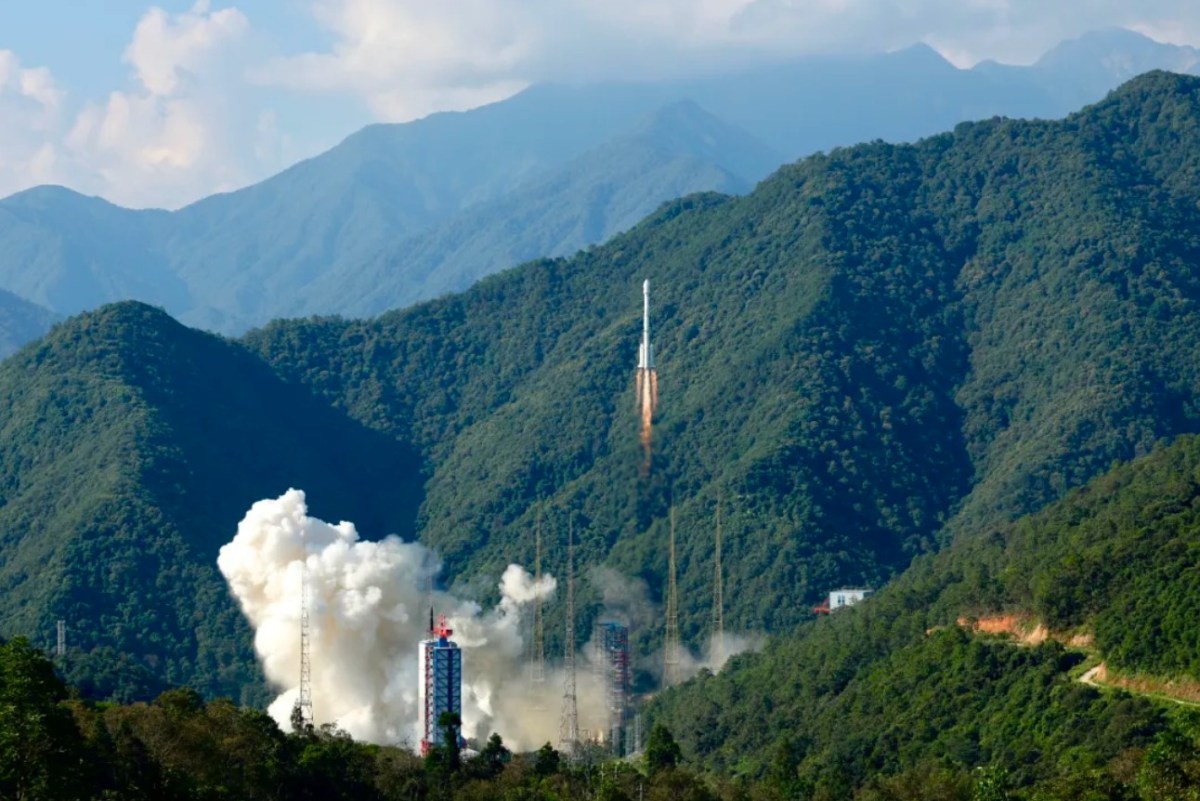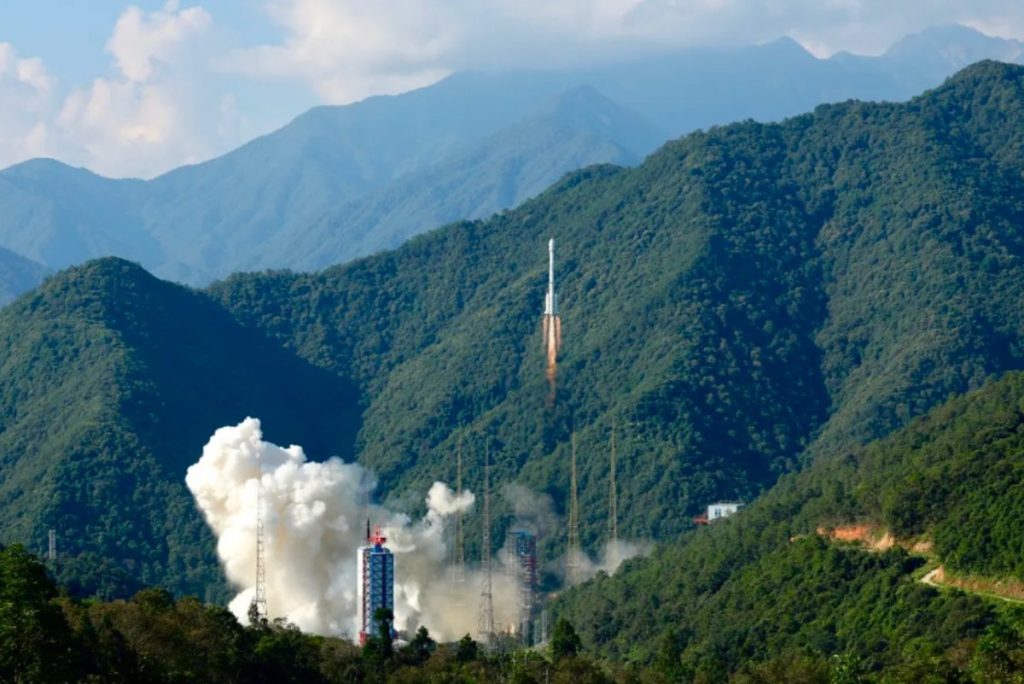The People’s Republic of China remains the United States’ chief adversary in space. In his October 2022 speech at the 20th Party Congress, Chinese President Xi Jinping highlighted the innovation of China’s space endeavors in recent years, noting that “we have witnessed major successes on multiple fronts, including human spaceflight, lunar and Martian exploration, deep sea and deep Earth probes, supercomputers, satellite navigation, quantum information, nuclear power technology, new energy technology, airliner manufacturing, and biomedicine. China has joined the ranks of the world’s innovators.”
The closing of 2022 marked the completion of China’s fully integrated Tiangong space station, representing a major rival to the International Space Station. Additionally, in April 2023, China announced it had launched a three-member crew into space as part of its plans to put Chinese astronauts on the moon by 2030. In August, Beijing launched the first of many satellites for its “thousand sails” satellite-internet constellation, designed to compete with SpaceX’s Starlink system.
It has been nearly a decade since Beijing debuted its Made in China 2025 initiative, where China aims to supersede the U.S. in nearly every critical industry imaginable. Chief among its goals is expanding China’s presence in space, including settling the moon and Mars. Beijing has its eyes set on dominating the space race against the U.S., effectively undercutting our military effectiveness in this new geopolitical era.
While America has led the world in space exploration and development, just as we did in the 1950s in the great Space Race with the Soviet Union, we must now meet the challenge of China. America’s regulatory system and agencies are losing sight of what matters most: getting rockets into the air. China is hell-bent on beating us to the moon with reckless abandon as rocket debris failures pile up alongside its increased launch cadence. While I credit the Federal Aviation Administration (FAA) and NASA for setting the standard in safety for the world, I am concerned that safety is often being conflated with compliance, ultimately harming our larger space endeavors.
In my role as ranking member of the Space and Science Subcommittee on the Senate Commerce, Science and Transportation Committee, I have made it a priority to make it easier, not harder, for the commercial space industry to continue to innovate. Missouri, where I serve, is home to dozens of space supplier companies that actively support critical missions, including NASA’s Artemis program, SpaceX’s Starship program, and Blue Origin’s New Glenn Program. The key to developing such critical technologies is through light touch regulation, not the heavy hand of government. NASA and the U.S. are at a key inflection point in the space race against Beijing, making it even more important that any new rules or regulations developed for the commercial space industry reflect the priorities of our commercial space sector.
As the commercial spaceflight industry continues to expand and innovate, the need for more launches in the coming years will grow exponentially. Data from the FAA reveal that 79 commercial launches occurred in 2022. That number increased to a record 117 launches in 2023, which makes it all the more necessary to modernize regulatory processes at these federal agencies to keep pace with the rapidly growing commercial space industry.
When commercial rockets are launched into space from Earth, they rely on federally-controlled spectrum bands for communication and vehicle control.
Unfortunately, the Federal Communications Commission’s (FCC’s) current licensing process was created decades ago, when there were few to no such commercial space launches. In other words, the FCC’s licensing rules have not kept up with the growing demand for commercial space launches, which strengthen America’s scientific, economic and national security goals. Moreover, as commercial space launch providers face more issues with mission cancellations because of weather and other variables, the FCC’s regulatory process further hampers the agency’s capacity to predict and adjust to changing circumstances.
As America’s presence in space expands, the FCC must update its spectrum licensing process for commercial space launches to ensure the U.S. maintains its all-important comparative advantage in this 21st-century space race against China.
This is precisely why I led efforts in Congress to modernize the FCC’s licensing process for commercial launches. Recently, after an almost two-year effort, the Launch Communications Act was signed into law. This bipartisan legislation is vital for reforming and updating outdated government processes that make it harder, not easier, for the commercial space industry to continue to innovate.
The Launch Communications Act will create an immediate solution to the current FCC spectrum licensing challenge. This legislation will create a new process for the FCC to issue spectrum licenses for commercial launches. This updated process not only helps eliminate outdated and redundant processes but also improves interagency coordination over the use of spectrum frequencies, while protecting federal users.
I have also led efforts in Congress to extend the FAA’s regulatory moratorium on commercial human spaceflight, also known as the “learning period,” and provide critical reforms to ensure that future commercial human spaceflight regulations reflect the realities of the industry. I remain hopeful for the continued inclusion of a three-year extension of the learning period in this year’s NDAA and that it will be signed into law before the end of the year.
The U.S. must continue to expand its capabilities in space to safeguard our partnerships and the international framework of the global space sector against the malign influences of adversarial nations. Fewer onerous regulations help us achieve that. America must maintain its geopolitical edge in the 21st-century space race against the Chinese Communist Party, and the government must stand in unison with that goal, not against it.




